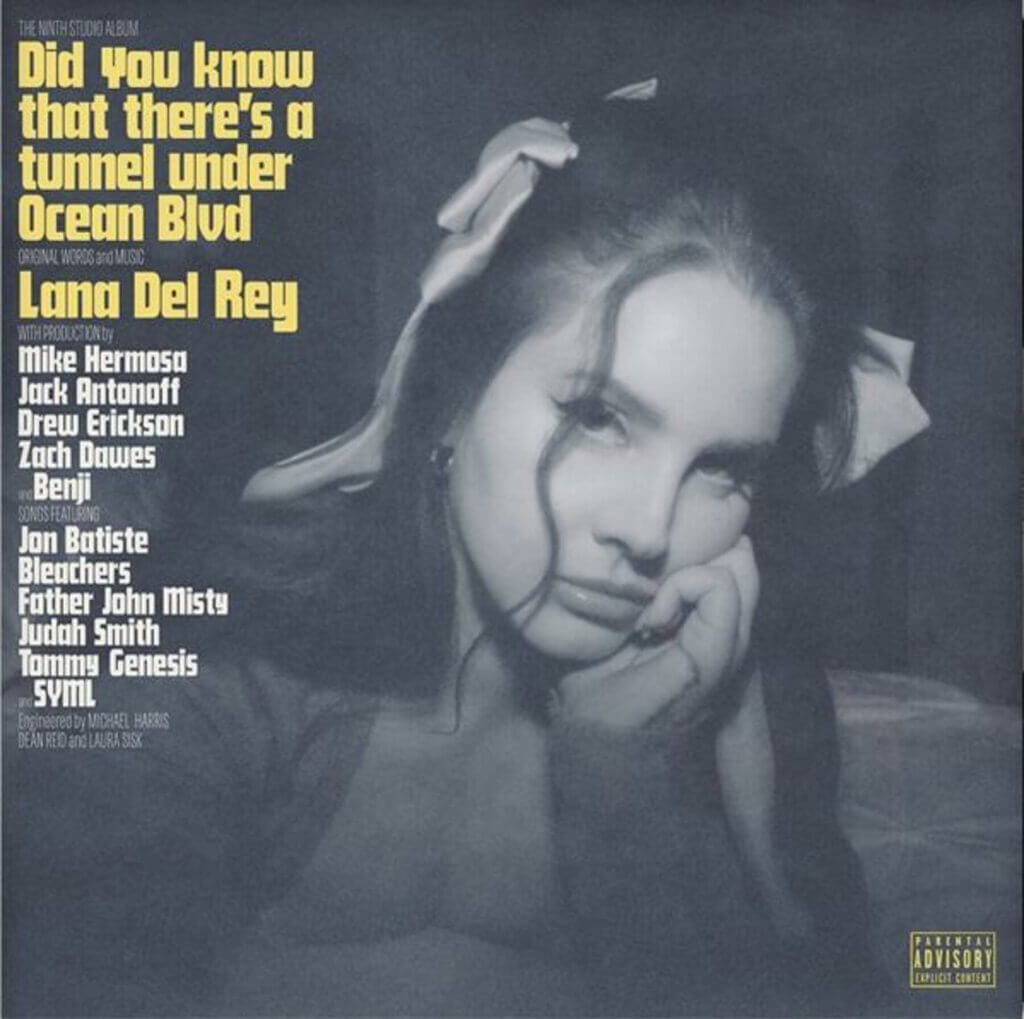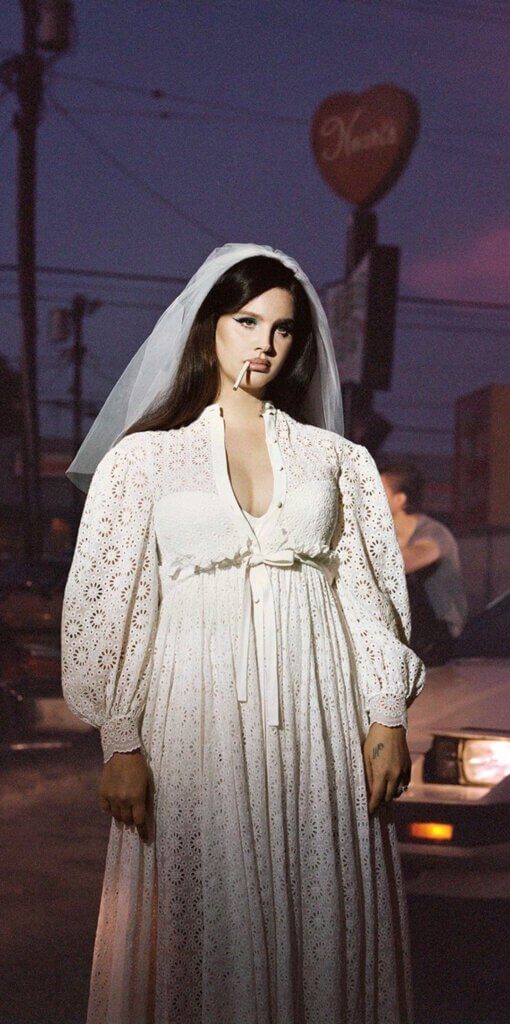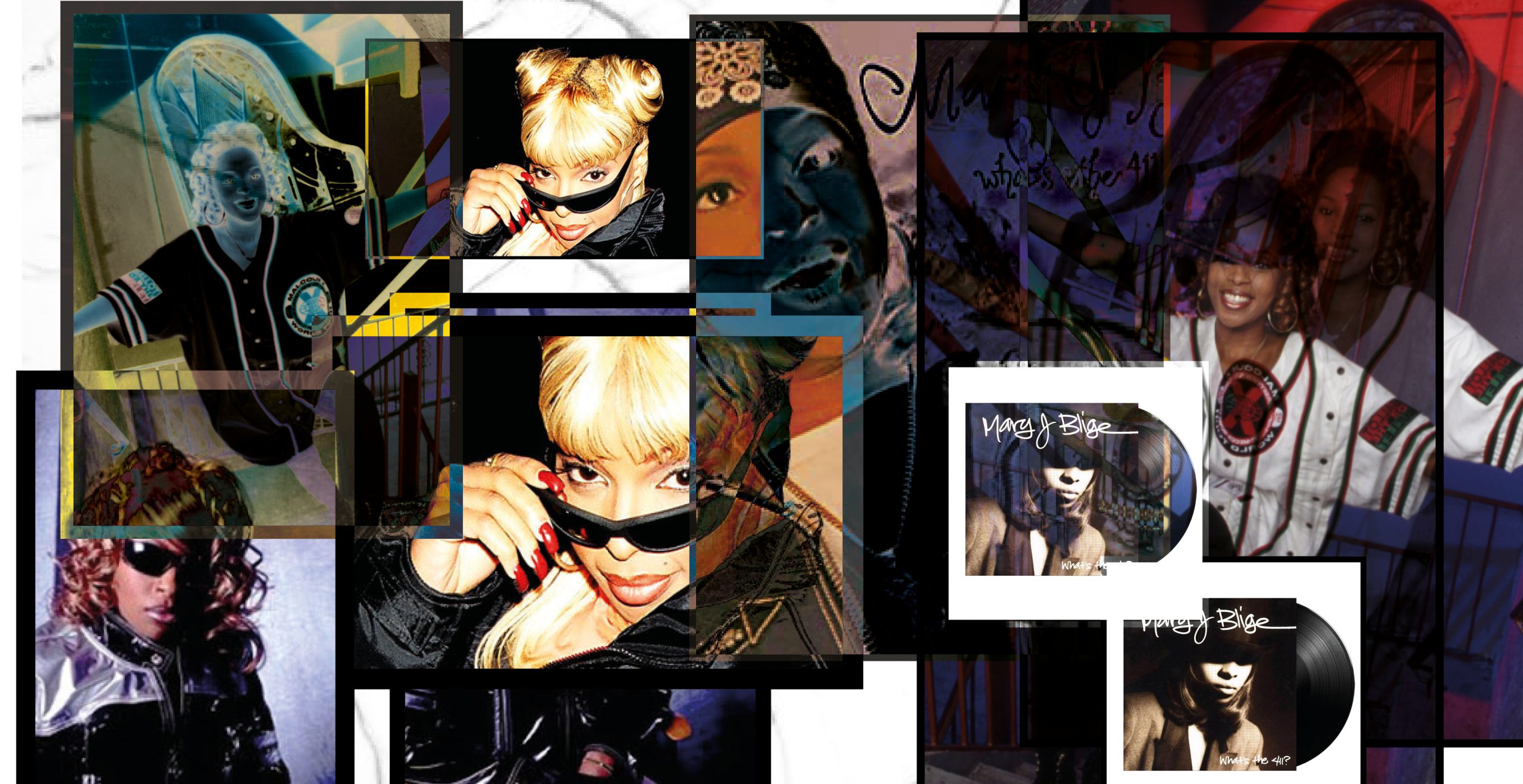Lana Del Rey’s New Album ‘Ocean Blvd’: Soft Melancholy Poured in Dreamy Ballads
Lana Del Rey, also known as Lizzy Grant, has released her ninth album titled “Did you know that there’s a tunnel under Ocean Blvd.” This collection is filled with enchanting ballads that explore self-acceptance and Del Rey’s enduring connection to her past.
Del Rey has always possessed an air of mystery, seeking hidden truths that elude those who view the world through conventional lenses. Her music resonates with individuals who yearn for transcendence and experience life with a nostalgia for something yet undiscovered. These are the individuals perpetually haunted by the fleeting nature of youth and every fleeting moment. At times, they find themselves submerged in overwhelming emotions, grappling with life’s unanswered questions.
Perhaps this is why the singer-songwriter chose to name her album and the titular song after a secret place, the Jergins Tunnel in Long Beach, California. Built in 1927 to offer pedestrians safe access beneath bustling Ocean Boulevard, it remained a hidden gem for decades. Drawing a parallel between the tunnel and herself, Del Rey explains that she exists in a preserved world that only a select few have discovered. Nonetheless, she yearns for external redemption, a ceaseless longing that pervades all her songs. “Open me up, tell me you like it,” she sings, “love me until I love myself.”
Yet, Del Rey’s fear of being unheard and forgotten looms even larger than her fear of being misunderstood. In her latest single “Young and Beautiful,” she openly wonders, “When’s it gonna be my turn?” and repeats the phrase “don’t forget me” as an eternal plea to ward off a sense of insignificance.
The album is yet another testament to Del Rey’s unwavering pursuit of boundless freedom. In her 2012 Ride Monologue, she professed her belief in the freedom of the open road, and eleven years later, she still finds solace in simply riding. In “Paris, Texas,” she sings, “When you know, you know / It’s time, it’s time to go,” fully aware that others may fail to comprehend her choices.

While Del Rey remains true to the profound desires that have shaped her music from the beginning, her lyrics in this new album also reveal an existential personal development. In 2020, she defended herself against accusations of being anti-feminist and glorifying abuse in her song lyrics. Del Rey asserted that there should be room in feminism for women who resemble her, stating, “the kind of woman who says no but men hear yes.” She positioned herself as a counterpoint to women who celebrate their independence and confidently own their sexuality.
Responding to her critics who claimed she merely depicted the reality of abusive relationships, she now goes a step further by critiquing the double standards within so-called feminist society. In “A&W,” Del Rey poses the question, “If I told you that I was raped, do you really think that anybody would think I didn’t ask for it?” This folk-trap ballad sheds light on how women who conform to characteristically feminine appearance and behavior are unfairly blamed and dismissed. After enduring intense scrutiny regarding her weight during the pandemic, Del Rey boldly asks, “Do you really think I give a damn about what I do after years of just hearing them talking?”
The seven intense minutes of “A&W” provide a vivid portrayal of her tumultuous affair, characterized by remarkable shifts in melody and lyrical mood. It oscillates between “I’m a princess, I’m divisive” and “Your mom called, I told her you’re fucking up big time.” This unpredictable clash of styles is also evident in “Taco Truck x VB,” where Del Rey samples elements from her seventh album, NFR!.

Having embarked on her musical journey two decades ago, Del Rey seems to have found peace in being committed to no one. In “A&W,” she claims, “It’s not about having someone to love me anymore. No, this is the experience of being an American whore.” Nine years ago, in “The Other Woman,” Del Rey painted a melancholic picture of being the “side piece,” forever destined to weep herself to sleep and never receive true love. Now, no longer desiring anyone’s love, she confesses that “you’re home when you’re alone” in “Paris, Texas.”
Del Rey’s struggle with alcoholism since the age of fourteen led her parents to send her to a strict boarding school in Connecticut in hopes of her recovery. “Did you know that there’s a tunnel under Ocean Blvd” also delves into the complexities of family dynamics. In “Fingertips,” Del Rey questions her sister Caroline, “What kind of mother was she to say I’d end up in institutions?” shedding light on her challenging relationship with her mother.
In summary, Lana Del Rey’s new album, “Did you know that there’s a tunnel under Ocean Blvd,” represents a musical realignment. It diverges from the overwhelming theatrics of her earlier work, such as “Born to Die.” Instead, these mystical and glamorous ballads exude a gentle melancholy.
Del Rey continues to sing in her distinctive, pathetically emotive manner about all-consuming love, the allure of death, and the sense of not belonging anywhere. However, what sets “Did you know that there’s a tunnel under Ocean Blvd” apart is its suggestion that Del Rey has found peace with her perceived fate, a fate she once fought against. In other words, it signifies her acceptance of what she considers her destiny.
*Head image by Nadia Lee Cohen for Interview Magazine



























